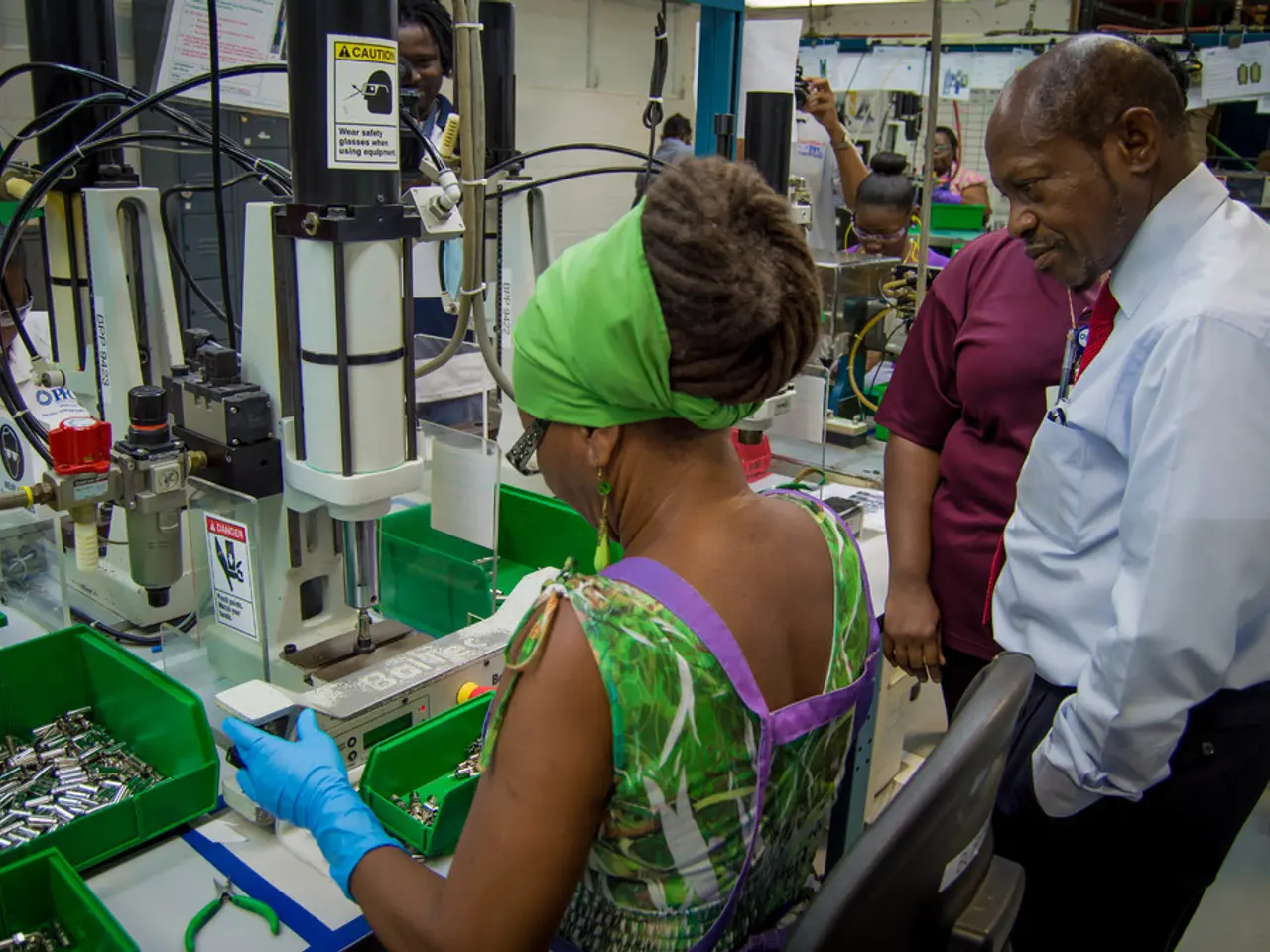Latest news: Modifications for 7 Training Programs Effective From August
The Federal Institute for Vocational Education and Training (BIBB) has announced an update to the training regulations for seven professions in Germany, set to take effect from August 1, 2025. This overhaul aims to integrate digitalization, sustainability, and modern manufacturing techniques into the dual vocational training system.
The Vocational Training Act (BBiG) governs these changes, emphasizing the importance of digital skills and sustainability measures in line with modern industry demands. The affected professions primarily include industrial, technical, and manufacturing trades, with training standards now incorporating digital competencies such as IT applications, automation, and computer-aided processes.
Sustainable production practices are also a key focus, aligning with Germany’s climate targets and EU regulations like the EU Battery Regulation and Ecodesign for Sustainable Products Regulation. The practical element of training now includes environmental protection standards and energy-efficient manufacturing, promoting green technologies in sectors like mechanical and plant engineering.
Regional vocational schools and training companies are collaborating to implement these updates, although challenges in ensuring smooth transitions and training provider arrangements have been noted in some regions. Apprentices will benefit from minimum wages and protections under the Vocational Training Act, receiving updated training to prepare for evolving industrial requirements.
Among the seven professions undergoing these changes are florists, goldsmiths, silversmiths, gemstone setters, legal administrative specialists, office management clerks, and photographers. Each profession's training regulations have been tailored to reflect the specific demands of the industry, with a focus on customer consultation, service orientation, communication, and business economic basic skills.
For example, the revised training regulations for florists will focus on service orientation, communication, digitalization, sustainability, and business economic basic skills. Similarly, the training for office management clerks will emphasize handling digital media and data, data security, data protection, information gathering, and information verification.
Photographers will see a focus on digital image processing, customer-oriented project work, and social media and new image formats. Meanwhile, the training for gemstone setters will emphasize customer consultation, sustainability, digitalization, and modern manufacturing techniques such as 3D printing.
The professions of goldsmith and silversmith will be covered by a joint training from August 1, previously separate with their own training regulations. This joint training will place emphasis on sustainability, digitalization, modern manufacturing techniques, and customer consultation.
These updates reflect a systemic modernization of training regulations across multiple trade and industrial occupations, reinforcing digital skills and sustainability as core elements of vocational education to ensure alignment with modern manufacturing techniques and Germany’s ambitious climate policies. For detailed, profession-specific training regulations, consult authoritative bodies such as GOVET and the respective chambers of industry and commerce.
Education and self-development in the fields of industrial, technical, and manufacturing trades are receiving significant updates, with a focus on personal growth areas such as learning digital competencies, sustainability, and modern manufacturing techniques. The affected professions, including florists, goldsmiths, silversmiths, gemstone setters, legal administrative specialists, office management clerks, and photographers, are integrating these skills into their training programs to align with modern industry demands and Germany's climate targets.




